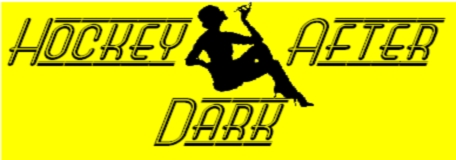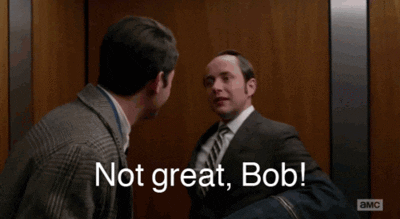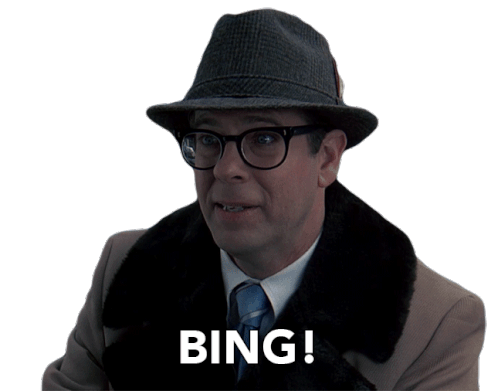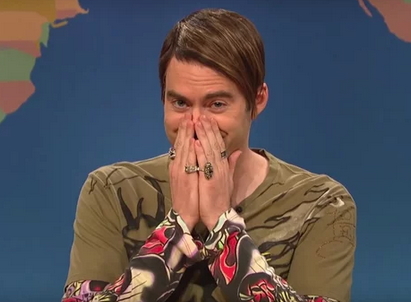Welcome to Hockey After Dark, a nightly recap of the NHL playoffs made possible by insomnia, playoff anxiety, and my BFF caffeine. Come for the topical social commentary, and stay for the sporadic in-depth analysis littered with obscure pop culture references. If you enjoy the snark, feel free to follow me at @DXTraeger
Man, that escalated quickly.
In the span of a few short hours, fans of the Pittsburgh Penguins went from their newfound (and unusual) position of “optimistic” back to “normal,” which is another way of saying that Yinzers are back to Blaming the Goalie™.
Tristan Jarry finished with 37 saves on 41 shots, but much has already been made of the four shots that eluded him:

So let’s address the elephant in the room: yes, Jarry surrendered four goals glove-side, and three goals were of the variety that Jarry would like to have back.
Kyle Palmieri’s game-winner in overtime was a rolling puck shot at a bad angle that found the perfect postage stamp above Jarry’s left shoulder. As disappointing as the result was, the shot itself was a fluke. Palmieri probably couldn’t replicate that shot under those conditions again, which is a lovely (and inconsequential) door prize: he made the shot, it went in, game over, credit the shooter and move on.
The other three goals were alarming not because they also went glove-side, but because Jarry had unobstructed looks at the shots and completely whiffed.
The first goal, also scored by Palmieri, was a one-legged wrister from behind the right circle. It was an accurate shot to be sure, but Jarry wasn’t challenging the shooter, and he seemed to flinch/duck as the shot came in.
In general, goalies that flinch at high shots don’t tend to have long shelf-lives.
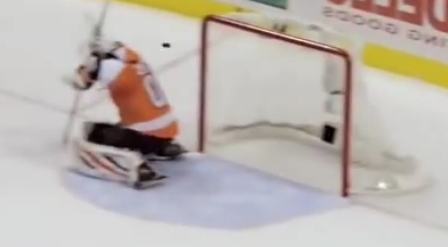
Regardless of whether or not Jarry’s reaction was positionally based (low butterfly shrugging upwards to protect the corners) or was an actual flinch, it was not a good goal to surrender. Still, like the eventual game-winner, it was a very accurate shot off of Palmieri’s stick.
Jean-Gabriel Pageau’s goal in the third period wasn’t much better. If you couldn’t watch the game and you’re wondering what this goal looked like, think Max Talbot’s second goal in Game 7 versus the Red Wings…only Pageau was behind the left circle.
At least Jarry can’t be accused of sitting back on this goal, as he skated out to challenge the shot. Unfortunately, Jarry was slightly off his line to the righ a-la Chris Osgood, and Pageau’s shot didn’t miss.
Brock Nelson’s very temporary go-ahead goal was to the glove-side, but instead of being ticketed for the upper right, the shot went in just above Jarry’s pads.
Was this game solely Jarry’s fault or is there shared blame?
The Islanders did what a Barry Trotz team does best, which is to take away the center of the ice. The Penguins were able to generate some odd-man opportunities (more on that in a moment) and had perhaps their best power-play movement all year.
Unfortunately, as the game went on, the Penguins began to repeatedly opt for the path of least resistance, which was skating around the perimeter, and the Islanders were thrilled to oblige them.
There are legitimate concerns about trying to force shots through a crowded box in the offensive zone (blocked shots springing a break the other way, not getting a shot through and effectively wasting a good possession), but the Penguins cannot win if nobody sets up residence in the slot.
Several times during the third period and overtime, the Penguins had a clear zone entry and skated around the New York goal with nobody trying to present themselves for a scoring opportunity.
At the very least, sending someone into the slot or to the goal mouth forces the defense to mark him and collapse, but with the Penguins refusing to enter the high-traffic area, the Islanders were able to avoid any true dangerous scoring opportunity.
In contrast, Kasperi Kapanen’s game-tying goal in the 3rd period happened because Jeff Carter drove the defense back with the famed “center drive.”
For those unfamiliar with the term, Jeff Carter dropped the puck to Kapanen just inside of New York’s blue line, and then simply skated down the middle of the ice toward the Islander’s goalie, Ilya Sorokin.
This simple act of forcing New York to respect Jeff Carter’s proximity to the goalie opened up the ice for Kapanen to skate in closer and rip a wrist shot off of the left post and in.
Too many times late in the game, the Penguins refused to force the Islanders’ defenders into a decision, something Pittsburgh could have achieved by sending a skater in front of Sorokin. I like the “shoot wide, deflect on net” strategy as much as the next person, but even that tactic doesn’t work if there’s nobody in position to redirect the shot/pass.
Still, the Penguins looked vastly better prepared relative to their 2019 rendition, and Pittsburgh controlled play with responsible pinches and switches. Brian Dumoulin in particular played a surprisingly aggressive game in the offensive zone.
What would I expect in Game 2? Expect the Penguins to shoot if a 2-on-1 presents itself. Expect the Penguins to send someone (I’m looking at you, Jason Zucker) off to the side of the Isles’ net to try and beat New York’s collapsing defense/black hole in front of whomever minds the net for the Islanders.
I also expect a more aggressive Tristan Jarry (better geometry = better goalie), and I expect someone to setup shot in front of the Islanders’ net, and then I expect that person to beat the grass to startle the snakes.
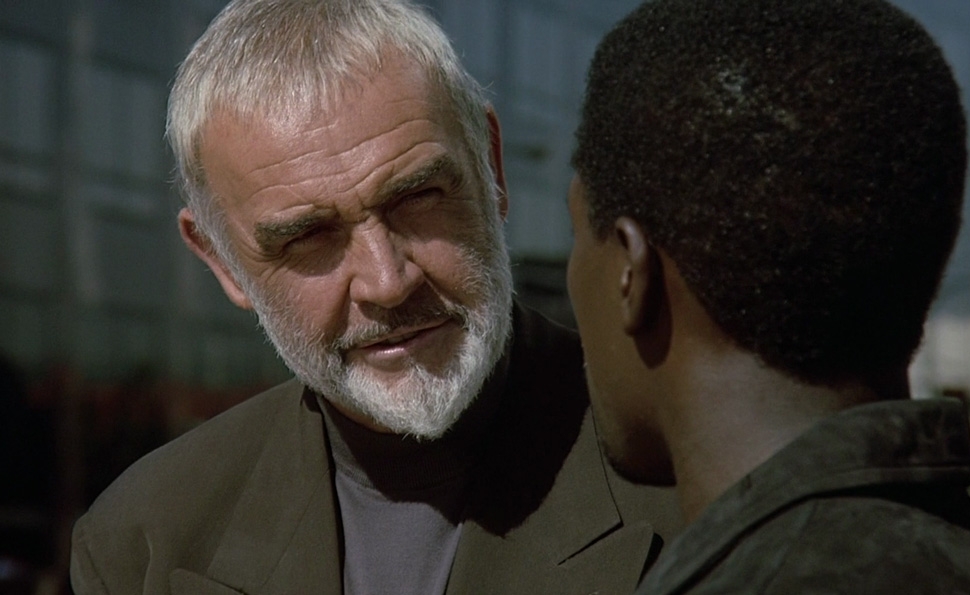
Game 2 is tomorrow night (Tuesday) at 7:30 PM on NBCSN.
Tampa Bay Lightning Defeat the Florida Panthers, 5-4
How best to describe this game, hmm…
How about: “This game was a doozy.”
This game had EVERYTHING.
Five lead changes.
Spotty play from the goalies.
Fisticuffs.
Waved off goal with the other team scoring seconds later.
Dan Cortez.
Suffice it to say that anytime you utter the word “Florida,” you’re going to get something crazy, and this game was easily the most entertaining of the Night 2 lot.
The game was, in a way, a national showcase of Aleksander Barkov, the perpetual “Most Underrated Player in the NHL.”
Barkov did not disappoint, scoring a goal and an assist, and he nearly notched a Gordie Howe hat-trick during a first period scrum with the Lightning’s Jan Rutta.
The Lightning took the lead for good with just 1:14 left in the third period, with Brayden Point picking up from where he left off last post-season. Point corralled a homerun pass from Ryan McDonagh and opened the wickets on Sergei Bobrovsky.
Game 2 will be tomorrow, and will be broadcast on the most exciting channel on network television, CNBC, at 8 PM.
Minnesota Wild defeat the Las Vegas Golden Knights, 1-0
The Golden Knight’s goalie, Marc-Andre Fleury, made some amazing glove stops in this game.
Did I mention that there were a lot of Marc-Andre Fleury glove saves? Because there were.
No, really. There were. Lots of them. The Minnesota Wild just couldn’t beat former Pittsburgh Penguin goalie Marc-Andre Fleury on his glove hand.
And then the Wild scored on a deflected shot to win the game in overtime.
Why are all of you staring at me?
And now…your moment of shirtless DM hockey Zen…
Add The Sports Daily to your Google News Feed!
